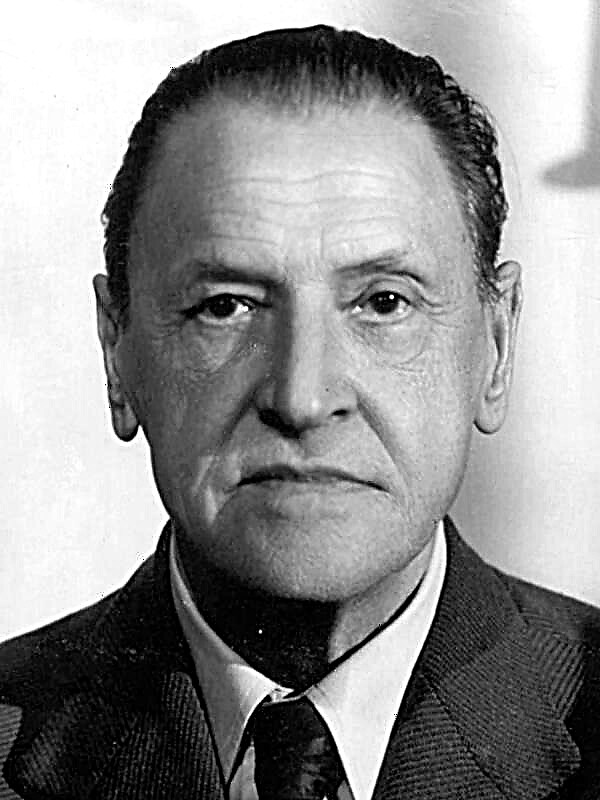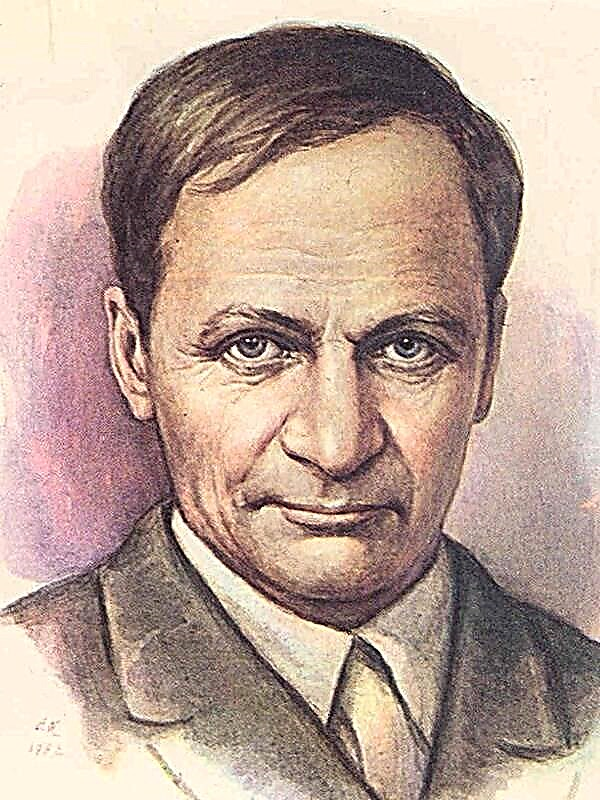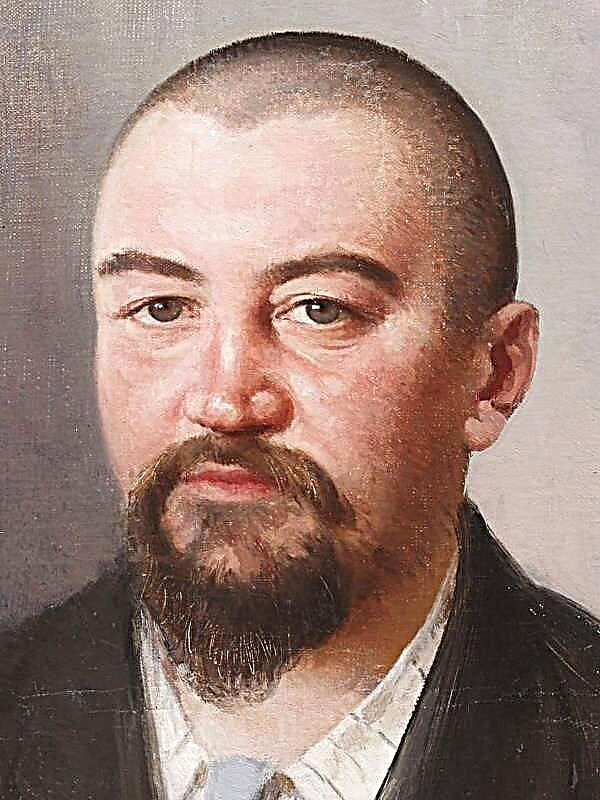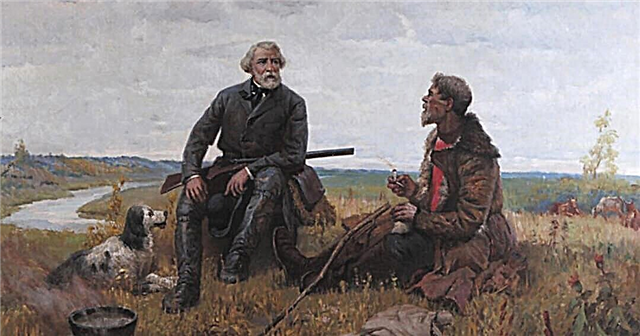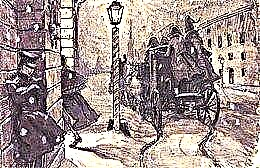The sisters Dorothea and Celia, left without parents, lived in the house of their uncle, guardian Mr. Brook. The sisters were almost equally handsome, but they differed in characters: Dorothea was serious and pious, Celia was sweet and moderately frivolous. Frequent guests at Mr. Brooke's house were two gentlemen who had a clear intention to soon offer Dorothea a hand and a heart. One is a young baronet, Sir James Chettem, the other is a scholar and, add, a very wealthy priest, Mr. Caseobon. Dorothea chose the latter, although at the age of fifty, he resembled, as evil tongues used to say, a dried mummy; the girl was inspired by reverence for the education and depth of mind of the reverend father, who was preparing to make the world happy with a multi-volume treatise, in which he proves on vast material that all mythologies in the world are distortions of a single, given above source. To Dorothea's formal proposal sent by Mr. Caseobon, she agreed on the same day; a month and a half later, they got married, and the newlyweds went on a honeymoon to Rome, because Caseobon needed to work with manuscripts in the Vatican library. Young sir James, having depressed a little, turned all his ardor to his younger sister, and soon she began to be called Mrs. Celia Chettam.
In Rome, Dorothea was disappointed: what she bowed so much to in her husband, deep knowledge, seemed to her more and more as a dead bulky cargo, which did not bring to life either exalted joy or inspiration. The only joy for her was a meeting with Will Ladislav, a poor distant relative of Mr. Caseobon, who visited Rome with a friend-artist. In his youth, Will had not yet chosen a life field for himself and lived on the money given out of mercy to him by Dorothea's husband.
When the Keysobon couple returned to Middlemarch, the main topic of conversation in the city was the construction of a new hospital. Money was given to her by the banker Mr. Bullstrode, a middle-aged man in Middlemarch, but already having a strong position thanks to his money, as well as his marriage, which tied him with property ties to the original middle marchers - Vinci, Garths, Featherstones. Mr. Lidgate, a young doctor who had come to the city from somewhere in the north, was to be in charge of the hospital; At first he was met with hostility by both colleagues and potential patients who were suspicious of Mr. Leadgate's advanced medical theories, but a little time passed, and among his patients were the most respected inhabitants.
So, it was Lidgate who was called when fever happened with young Fred Vinci. This young man, the son of wealthy Middlemarch respected parents, did not live up to the family's hopes: his father invested a lot of money in his education so that he could devote himself to becoming a gentlemanly priestly profession, but Fred was in no hurry to take the exam, preferring hunting and billiards in everything a pleasant society of "burners of life." Such a pastime requires money, and therefore he had one very large debt.
Fred’s illness did not threaten anything serious, but Mr. Leadgate regularly visited the patient, drawn to his bed partly by a debt, partly by the desire to be in the company of Fred’s sister, the charming blond Rosamonda Vinci. Rosamond also had sympathy for a promising, purposeful young man, endowed with a pleasant appearance, mind and, as they say, some capital. Enjoying in the presence of Rosamond, in the evenings at the academic studies, Lidgate completely forgot about her and was not going to get married in the next few years. Not that of Rosamond. After the first meetings, she began to think about the atmosphere of the family home and about everything the bride was supposed to take care of. Seeing that Leadgate was powerless in front of her spell, Rosamonda easily got her way, and soon the Leadgates already lived in a beautiful spacious house, exactly the one she dreamed about.
At Rosamond, everything turned out well so far, but the situation in which her brother fell into was by no means pleasant. There was no question of asking for money from his father, but Kaleb Garth, the father of Mary, to whom Fred was deeply partial, spoke out as a guarantor for Fred. Mr. Garth was a surveyor and, as an honest and disinterested person, did not have significant funds, but he immediately agreed to pay Fred’s debt, thereby dooming his own family to deprivation. However, poverty and deprivation are not something that could seriously overshadow the life of the Garts.
Even the savings that Mary Garth made, being a sort of housekeeper with a wealthy relative of Garth and Vinci, old man Featherstone, went into repaying the debt of a frivolous young man. In fact, Fred counted on the inheritance of the rich uncle, issuing a bill of exchange, for he was almost sure that it was after his death that Fezestone would leave his land holdings. However, all of Fred’s hopes turned out to be futile, as did the hopes of many other relatives who had flown to the old man’s deathbed. The deceased refused all the property to a certain unknown Joshua Rigg, his illegitimate son, who immediately hastened to sell the estate to Bulstrod and permanently disappear from Middlemarch.
Years, meanwhile, did not spare Mr. Caseobon. He began to feel much worse, weakened, suffered from palpitations. In this position, the reverend father was particularly annoyed by the presence in his life with Dorothea of Will Ladislav, who was obviously in love with Mrs. Caseobon; in the end he even refused Will home.
Will was quite ready to leave Middlemarch, where until then he was only kept in attachment to Dorothea, when the election campaign began. This circumstance, which would seem to have no relation to the life of normal people, played a well-known role in the selection of the field not only by Will, but also by Fred Vinci. The fact is that Mr. Brooke intended to run for Parliament, and it turned out that in the city and the county he was full of ill-wishers. In order to adequately respond to their attacks, an elderly gentleman acquired one of the midmarch newspapers and invited Will Ladislav to the post of editor; other sufficiently educated people in the city were not found. The bulk of the attacks boiled down to the fact that Mr. Brooke is a worthless landowner, because the matter on the farms belonging to him was put out of control badly. In an effort to strip the accusers of ill-wishers, Mr. Brooke invited Kaleb Garth to be manager. Some other landowners followed his example, so that the ghost of poverty departed from the Garth family, but his head became overwhelmed. Mr. Kaleb needed an assistant, and so he decided to make Fred, who still hung around idle.
Fred Vinci, meanwhile, had already begun to seriously consider accepting the dignity, which would give him at least some constant income and the opportunity to gradually pay off the Garts. In addition to her own reluctance, she was stopped by Mary’s reaction, with an ardor that was generally unusual for her, stating that if he went to such a profanity, she would end all relations with him. Kaleb Garth’s proposal came in handy, and Fred, gladly accepting it, tried not to face his face.
Mr. Caseobon was unable to obstruct Will’s appointment and seemed to have reconciled himself to the fact that the young man remained in Middlemarch. As for the health of Mr. Caseobon, it did not improve at all. During one of Dr. Lidgate’s visits, the priest asked him to be very frank, and Lidgate said that with such a heart disease he could live another fifteen years, or he could suddenly die much earlier. After this conversation, Caseobon became even more thoughtful and finally set about organizing the materials collected for the book, designed to be the result of his whole life. However, the very next morning, Dorothea found her husband dead on a bench in the garden. Caseobon left all his fortune to her, but at the end of the will he made a note that it was valid only if Dorothea did not marry Will Ladislav. Offensive in itself, this postscript in addition cast a shadow on Mrs. Caseobon's impeccable reputation. One way or another, Dorothea did not even think about remarriage, but she devoted all her strength and income to charity work, in particular to helping a new hospital, where Lidgate was in charge of the medical unit.
With Leadgate's practice, everything was in order, but family life was not going well. It soon turned out that his vital interests had nothing to do with the interests of Rosamond, who talked about the fact that Lidgate should leave the hospital, where he enthusiastically and successfully, but completely used advanced treatment methods, and, having moved to another place, started more profitable than he had in Middlemarch, practice. It was not at all that the spouses were brought together by the grief experienced by them when Rosamonda had a miscarriage, and even more so by the financial difficulties that are natural for a novice doctor when he lives on such a wide leg. Unexpected help came in the form of a check for a thousand pounds - it was such a huge amount that Lidgate needed to settle accounts with creditors, proposed by Bulstrod.
The banker was generous for good reason - he, a man in his own way of piety, needed to do something to calm his conscience, awakened by a certain story. This story was not completely disinterestedly reminded to Bulstrode by a subject named Rafls.
The fact is that Rafles served in one enterprise, which flourished thanks to not quite legal operations, as a co-owner, and after that Bulstrod was once the sole owner. After the death of a senior companion, Bulstrod became the owner, from whom he inherited not only business, but also his wife. The only daughter of his wife, stepdaughter of Bulstroda Sarah, fled from home and became an actress. When Bulstrod was widowed, Sarah would have to share huge capital with him, but they could not find her, and all went to him alone. There was one man who nevertheless found a fugitive, but he was generously paid to leave for America forever. Now Rafles was back from there and wanted money. It remains to add that Sarah married the son of the Polish emigrant Ladislav and that they had a son, Will.
Raflsa Bulstrod sold off, handing over the required amount, and Will, telling about everything, offered a fortune, but the young man, no matter how poor he was, indignantly refused the money acquired by dishonest means. Bulstrod had almost calmed down when Kaleb Garth suddenly came to him and brought the very sick Rafles; according to Garth, it was clear that he had time to talk about everything. Lidgate, called by Bulstrod, prescribed opium to the patient and left him in the care of the banker and his housekeeper. Going to bed, Bulstrod somehow forgot to tell the housekeeper how much opium to give to the patient, and she slept the whole bottle for him during the night, and in the morning Rafls passed away.
Rumors circulated around the city that Bulstrod purposely killed the patient, and Lidgate helped him in this, for which he received a thousand pounds. Both were severely obstructed, only Dorothea could put an end to, who believed the doctor and convinced many others of his innocence.
Dorothea herself, meanwhile, was more and more imbued with tender feelings for Will, and finally an explanation took place: the young people decided to get married, despite the fact that Dorothea would lose the right to Caseobon’s money. Over time, Will became a figure visible in political circles, but by no means a politician, Dorothea found herself as a wife and mother, for, with all the talents, in what other field the woman could prove herself at that time.
Fred and Mary, of course, also became husband and wife; they were not rich, but they lived a long, bright life, adorned with the birth of three glorious sons.
Lidgate died fifty years old in one of the fashionable resorts where he lived, to the delight of Rosamond specializing in gout - the disease of the rich.

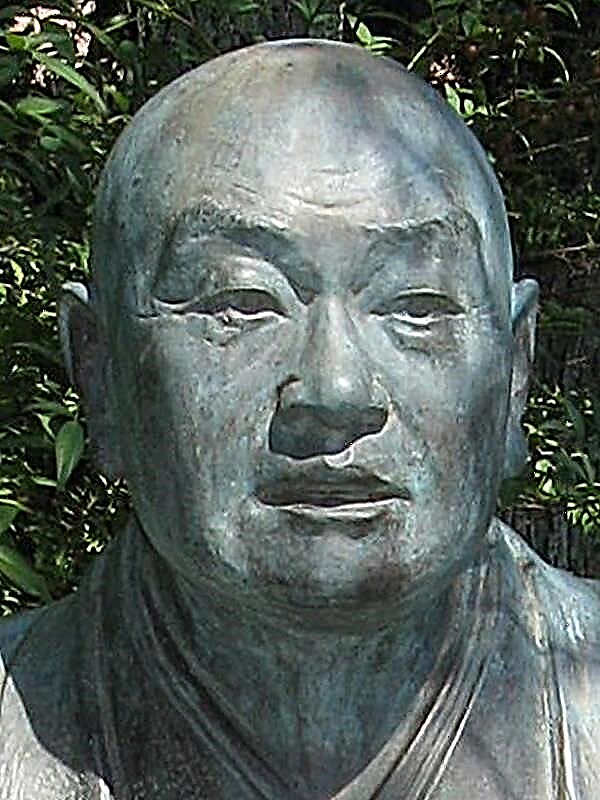
 New posts of Qi Xie
New posts of Qi Xie
